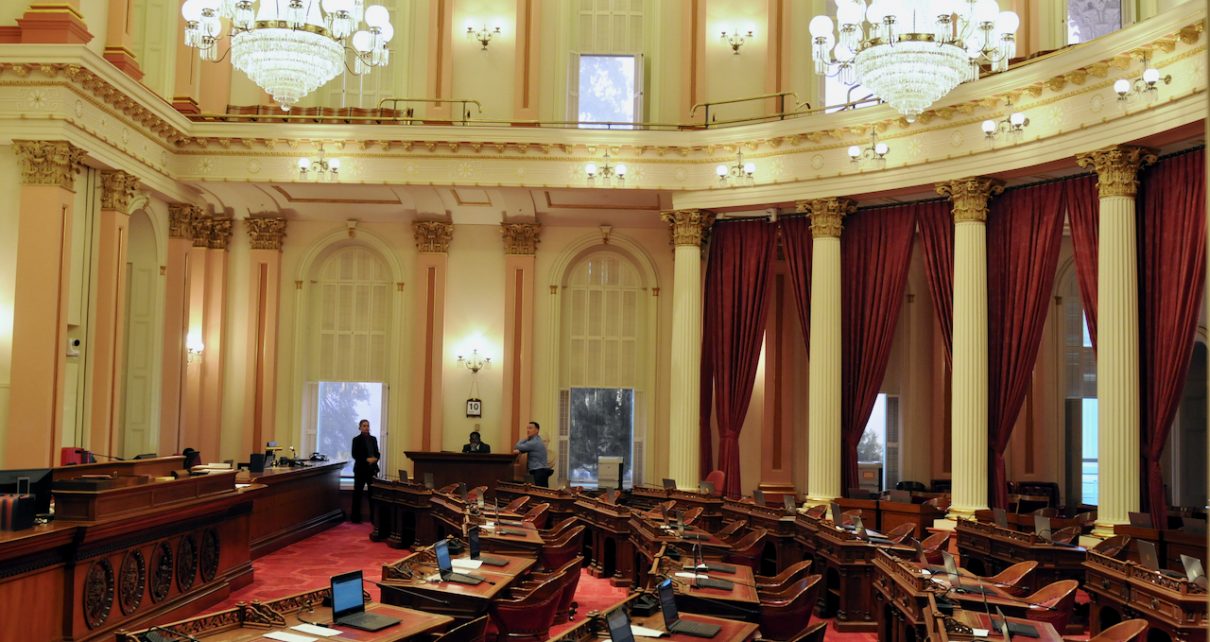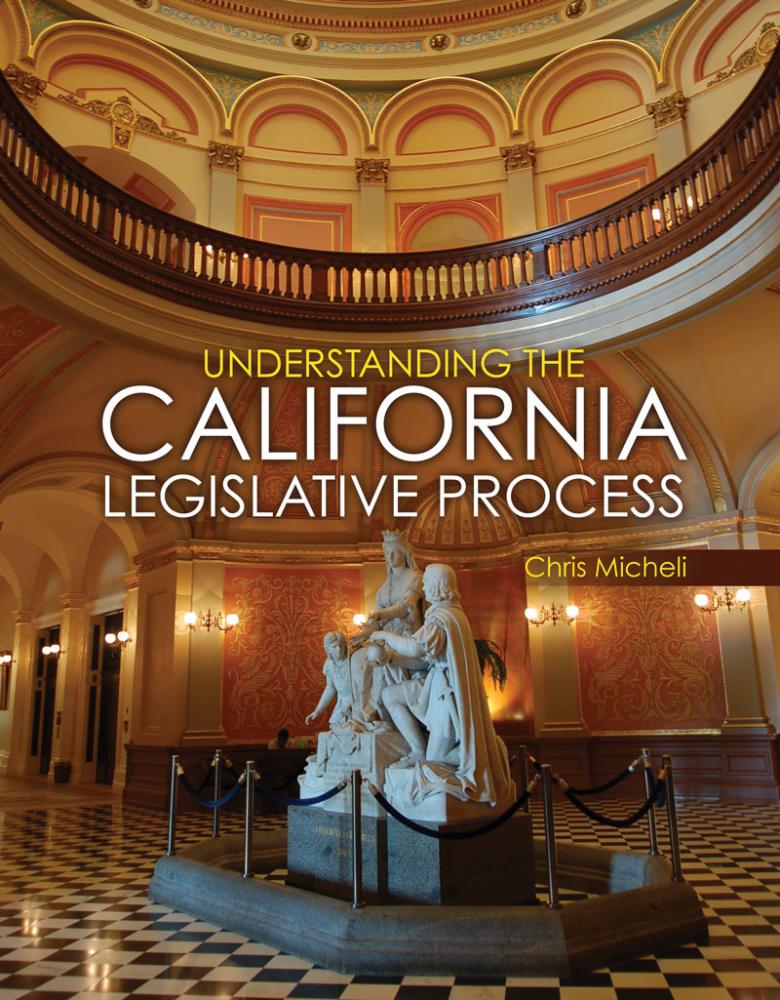
California Senate Chambers. (Photo: Kevin Sanders for California Globe)
A Unique Role for the Legislature in the Rulemaking Process
There are several ways in which the Legislature can influence the rule-making activities of state agencies
By Chris Micheli, January 25, 2019 7:29 am
The State of California has over 200 agencies, departments, boards, and commissions that can make public policy via their authority to adopt regulations, often referred to as their rule-making authority. There is a lengthy list of state agencies that have adopted regulations which can be found on the website of California’s Office of Administrative Law (OAL). OAL’s website also provides direct access to the California Code of Regulations (CCR), which is organized under 28 subject matter titles.
There are several ways in which the Legislature can influence the rule-making activities of state executive branch agencies, primarily through the lawmaking and budgetary processes. For example, the Legislature can adopt statutory changes to expand or limit a specific state agency’s authority to adopt regulations, or the Legislature can utilize the “power of the purse strings” through the budget process to persuade a state agency’s rule-making actions. California law also provides a unique role for the Legislature to influence the quasi-legislative efforts of the executive branch. This brief article looks at that unique role.
The Administrative Procedures Act
The Administrative Procedures Act (APA) requires procedures for rule-making and administrative hearings by these numerous state agencies and departments. The APA is found at Chapters 3.5, 4 and 5 [commencing with Section 11340] of Part 1 of Division 3 of Title 2 of the California Government Code. California’s APA is based largely on the federal APA.
Generally speaking, the authority of state agencies and departments to adopt policy (through rule-making) is defined and restricted by statute. It is an established principle of administrative law that an agency cannot exceed its legally-prescribed authority to regulate. On the other hand, some statutes confer broad powers to selective state agencies regarding matters that directly affect the public generally (e.g., Department of Motor Vehicles, Air Resources Board, and Department of Fair Employment and Housing).
Legislative Review of Regulations
Under the Joint Rules of the California Legislature, the Joint Rules Committee, as well as the respective Rules Committees of both the Assembly and Senate, may approve any request for a priority review of a regulation pursuant to Section 11349.7 of the Government Code. If such a request is approved, the Joint Rules Committee must submit any approved requests to the Office of Administrative Law.
In addition, under the Joint Rules, any Member of the Senate may request the Senate Committee on Rules, and any Member of the Assembly may request the Speaker of the Assembly, to direct a standing policy committee of their respective houses or the Office of Research of his or her respective house to study any proposed or existing regulation or group of related regulations.
Upon receipt of such a study request, the Senate Committee on Rules or the Speaker of the Assembly determines whether a study will be made of the regulation(s). In reviewing the request, the Senate Committee on Rules or the Speaker of the Assembly must determine (1) the cost of making the study; (2) the potential public benefit to be derived from the study; and, (3) the scope of the study.
Under the Joint Rules, the study may consider, among other relevant issues, whether the proposed or existing regulation:
(1) Exceeds the agency’s statutory authority.
(2) Fails to conform to the legislative intent of the enabling statute.
(3) Contradicts or duplicates other regulations adopted by federal, state or local agencies.
(4) Involves an excessive delegation of regulatory authority to a particular state agency.
(5) Unfairly burdens particular elements of the public.
(6) Imposes social or economic costs that outweigh its intended benefits to the public.
(7) Imposes unreasonable penalties for violation.
The review must be done in a timely manner and any concerns must be transmitted to the Senate Committee on Rules or the Speaker of the Assembly, as well as the relevant state agency that is promulgating the regulation. In the event that a state agency takes a regulatory action that the reviewing entity finds to be unacceptable, the entity must file a report for publication in the Daily Journal of its respective house indicating the specific reasons why the regulatory action should not have been taken. The report may include a recommendation that the Legislature adopt a concurrent resolution requesting the state agency to reconsider its action or that the Legislature enact a statute to restrict the regulatory powers of the state agency taking the action.
- Relations of LLC Members and Managers - February 24, 2026
- This Is an Interesting Limit on Rulemaking Power - February 23, 2026
- Miscellaneous Civil Action Proceedings - February 23, 2026




